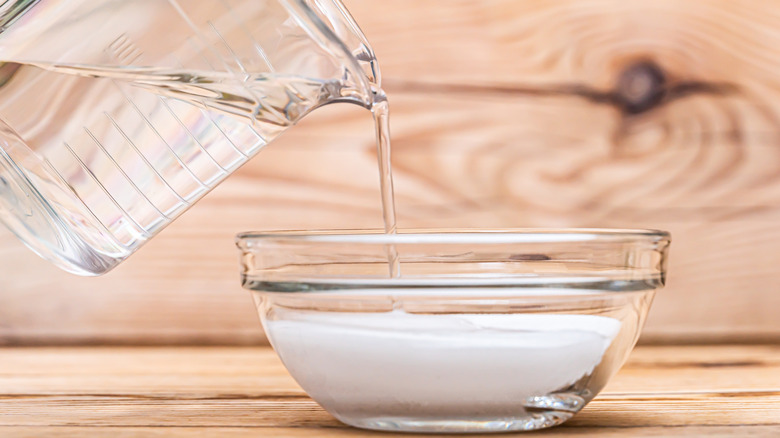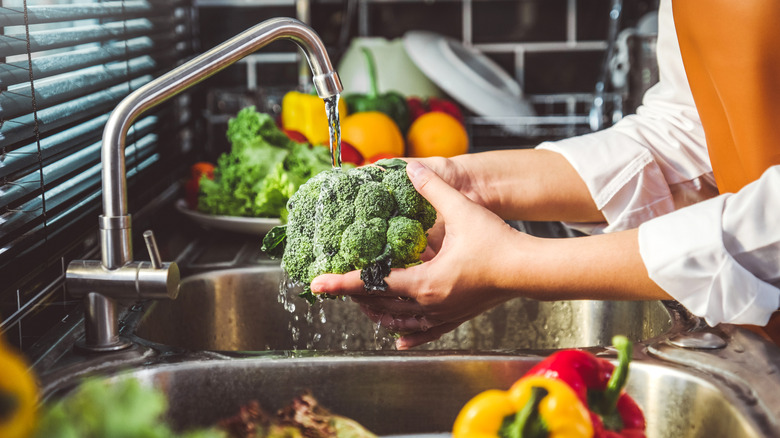The Fruits And Vegetables You Should Soak With Baking Soda
Washing your produce is a key step when preparing to eat your fruits and vegetables because it helps remove any grocery store grime, and even pesticides from the growth process. While there is a bit of debate surrounding how best to clean produce, Food Republic spoke to Stephen Chavez, head chef-instructor at the Institute of Culinary Education's Los Angeles campus, to learn more.
With some produce, a quick rinse with water simply won't cut it — in fact, you really shouldn't soak your fruit in water at all — which is where baking soda comes in. According to Chavez, if you use baking soda, "studies showed a significant reduction of the most common pesticides from the surface of produce compared to just water." This is especially important when it comes to cleaning certain produce.
So, which fruits and veggies should you be washing with baking soda? The key is to look for what's known as the 'dirty dozen.' Chavez said, "The 'dirty dozen' are produce items that you should preferably purchase organic, because these are items that you would traditionally eat skin and all. This includes apples and berries, for example."
Meanwhile, vegetables in this category include things like kale and green beans. Chavez added that "for getting into grooves, you may want to use a very soft bristled brush while washing off the produce." While it may seem tedious to use extra ingredients just to clean a cluster of grapes, keeping your fruits and veggies safe to eat is never a waste of time.
Cleaning without baking soda
Is baking soda necessary for cleaning every kind of fruit and vegetable? Not necessarily. While you may want to use baking soda for all of your cleaning, just in case, Stephen Chavez said that produce that falls under the "clean fifteen" label doesn't need it. "The 'clean fifteen' are items you traditionally peel before eating," explained Chavez, "for example, pineapples and oranges -– so you may be okay to purchase non-organic here." Since you usually just eat the inner fruit and discard the skins, you don't need to wash them — unless you're going the no-waste route and making the most of your citrus peels.
In the case of vegetables, this would apply to items like pumpkin or squash if you're only planning to use the inner layers. Use your best discretion with produce like onions that do have removable layers, but might benefit from a cleaning. As Chavez reminded cooks, "There are some pesticides, however, that can actually penetrate the skin of produce." But in general, Chavez said to use the 'dirty dozen' and 'clean fifteen' as a "guide to decide which items you should soak with a baking soda solution before rinsing with water, and which items are ok to simply rinse with water alone." Just be thorough and handle your produce with care, especially if you're eating it raw since bacteria is typically eliminated by high heat from cooking. Rinsing with water is great, but baking soda is the best extra defense.


